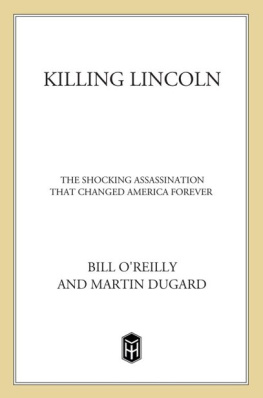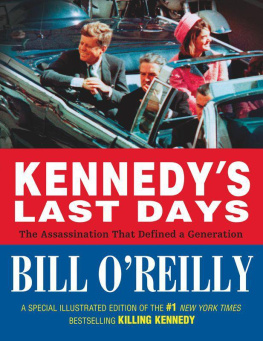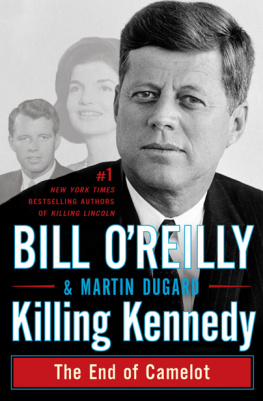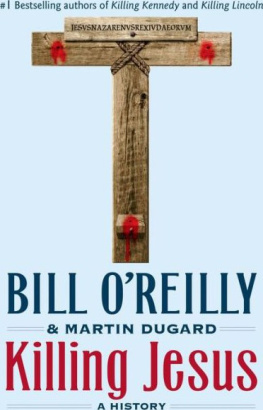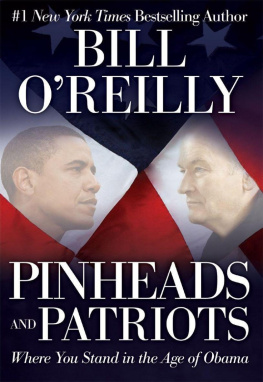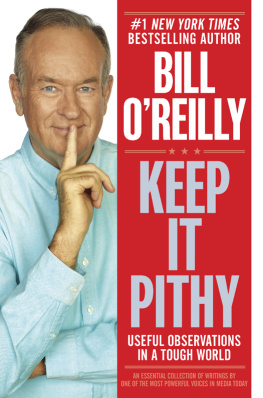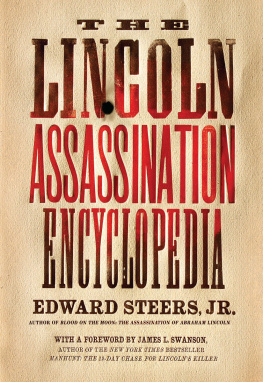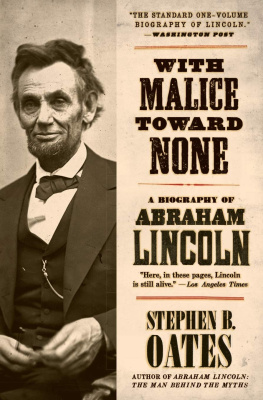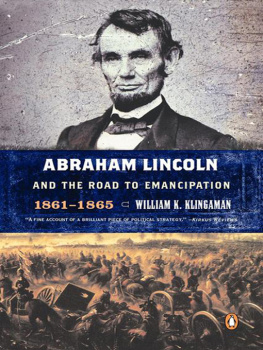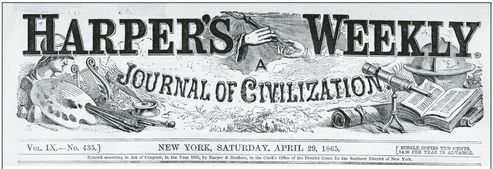RE-CREATION OF HARPERS WEEKLY
The April 29, 1865, edition of Harpers Weekly was entirely devoted to the assassination and death of Abraham Lincoln. The edition went to the printers just hours after word reached Washington that John Wilkes Booth had been located and shot dead. This gives the writers words an urgency and heartfelt emotion that allow modern readers to gain a very real sense of how the nation was reacting to Lincolns death. On the day that it came out, Lincolns funeral train was traveling from Cleveland to Columbus, Ohio, and the trial of the conspirators had not yet begun. The nation was still very much at a loss over how to deal with this national tragedy. Here we reprint the entire text of the article The Murder of the President as it appeared in that edition.
THE MURDER OF THE PRESIDENT.
The Fourteenth of April is a dark day in our countrys calendar. On that day four years ago the national flag was for the first time lowered at the bidding of traitors. Upon that day, after a desperate conflict with treason for four long, weary yearsa conflict in which the nation had so far triumphed that she breathed again in the joyous prospect of coming peaceher chosen leader was stricken down by the foul hand of the cowardly assassin. Exultation that had known no bounds was exchanged for boundless grief. The record upon which had been inscribed all sorts of violence possible to the most malignant treason that ever sought to poison a nations heart had been almost written full. But not quite full. Murder had run out its category of possible degrees against helpless loyalists in the South, against women and children whose houses had been burned down over their heads, and against our unfortunate prisoners, who had been tortured and literally starved to death. But there still remained one victim for its last rude strokeone victim for whom, it was whispered in rebel journals South and North, there was still reserved the dagger of a BRUTUS. Beaten on every field of recognized warfare, treason outdid its very self, and killed our President.
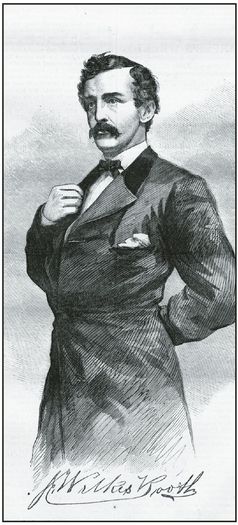
The man who lent himself to traitors for this vile purpose was JOHN WILKES BOOTH, who sold himself, it may be, partly for the pieces of silver, but chiefly for the infamous notoriety attaching to such an act. There was an ancient villainwho deliberately purposed to perpetuate the memory of his name among men by an act of awful sacrilegea sacrilege so striking as never to be forgottenand he burned the temple of the Ephesian Diana. EROSTRATUS gained his end, and has been remembered accordingly. A memory far more detestable is in store for JOHN WILKES BOOTH , who dared, by the commission of an infinitely greater sacrilege, to bring a whole people to tears.
He was the third son born in America of the eminent English tragedian JUNIUS BRUTUS BOOTH. There were three brothers, JUNIUS BRUTUS, Jun., EDWIN, and JOHN WILKES, all of whom inherited a predilection for the stage. EDWIN, however, is the only one of these who has attained a very eminent position as an actor, and he is probably surpassed by no living man. In justice to him it is proper here to state that he is true and loyal, and exacts our sincerest sympathy. The elder BOOTH, father of these three actors, died thirteen years ago. He passed the quieter portion of his life upon his farm, in Harford County, some thirty miles from Baltimore. JOHN WILKES BOOTH, the murderer, was born in 1839, and is now only twenty-six years of age. He went upon the stage at the early age of seventeen, simply as JOHN WILKES. As stock actor he gained a fair reputation, and afterward assuming his full name, he began a more ambitious career. But, partly on account of his dissolute habits, he never achieved a marked success. He performed chiefly in the South and West. He has appeared but few times before a New York audience. In person he bears considerable resemblance to his father. His eyes are dark and large; his hair of the same color, inclined to curl; his features finely molded; his form tall, and his address pleasing. He abandoned his profession recently on account of a bronchial affection. It is said that he has frequently threatened to kill President LINCOLN . His companions have been violent Secessionists, and there are doubtless many others involved to a greater or less degree in his crime. The attempt to assassinate Secretary SEWARD was made probably by an accomplice. It is supposed that Secretary STANTON and ANDREW JOHNSON were to have been added to the list of victims. The latter, at least, received on Friday a card from BOOTH, but was not at home.
Those who were acquainted with BOOTHS movements on the fatal Friday say that his manner was restless. He knew that the President and his party intended to be present at Fords Theatre in the evening. He asked an acquaintance if he should attend the performance, remarking that if he did he would see some unusually fine acting. It was the general expectation that General GRANT would form one of the Presidents party, and there are many who suppose that a blow was intended for him as well as the President. The latter had passed the day in the usual manner. In the morning his son, Capt. ROBERT LINCOLN, breakfasted with him.The Captain had just returned from the capitulation of ROBERT E. LEE, and the President listened with great interest to his narration of the detailed circumstances. After breakfast he conversed for an hour with Speaker COLFAX about his future policy as to the rebellion which he was about to submit to his Cabinet . At 11 oclock the Cabinet met. Both the President and General GRANT were present. Having spent the afternoon with Governor OGLESBY, Senator YATES, and otherleading citizens of his State, he went to the theatre in the evening with Mrs. LINCOLN , in order to unite in the general expression of popular joy for our late victories. The party consisted of Mrs. Senator HARRIS and daughter, and Major HENRY RATHBONE, Of Albany . They arrived at ten minutes before nine oclock, and occupied a private box over-looking the stage. The play for the evening was The American Cousin.
BOOTH came upon his errand at about 10 oclock. He left his horse in charge at the rear of the theatre, and made his way to the Presidents box . This box is a double one, in the second tier at the left of the stage. When occupied by the Presidential party the separating partition is removed, and the two boxes are thus thrown into one. We give an accurate plan of the box on page 259 .According to Major RATHBONES statement, the assassin must have made his preparations in the most deliberate manner beforehand. Of this fact there are at least four proofs, as we shall see: Stealthily approaching the dark passageway leading to the box, BOOTH, after having effected an entrance, closed the hall door, and then, taking a piece of board which he had prepared for the occasion, placed one end of it in an indentation excavated in the wall, about four feet from the floor, and the other against the moulding of the door-panel a few inches higher. He thus made it impossible for any one to enter from without; and securing himself against intrusion in that direction, he proceeded to the doors of the box. There were two of those. Here also the villain had carefully provided before hand the means by which he might, unnoticed himself, observe the position of the parties inside. With a gimlet, or small bit, he had bored a hole in the door-panel, which he afterward reamed out with his knife, so as to leave it a little larger than a buck-shot on the inside, while on the other side it was sufficiently large to give his eye a wide range. To secure against the doors being locked (they both had spring-locks), he had loosened the screws with which the bolt-hasps were fastened. In regard to the next stage of BOOTHS movements there is some degree of uncertainty. He had been noticed as he passed through the dress-circle by a Mr. FERGUSON, who was sitting on the opposite side of the theatre. This man knew BOOTH, and recognized him. He had been talking with him a short time before. FERGUSON states that when BOOTH reached the door of the corridor leading from the dress-circle to the boxes he halted, took off his hat, and, holding it in his left hand, leaned against the wall behind him. After remaining thus for the space of half a minute, he stepped down one step, put his hand on the door of the little corridor leading to the box, bent his knee against it, when the door opened and BOOTH entered. After his entrance to the corridor he was of course invisible to FERGUSON, and, before the fatal shot, was probably seen by no one but the sentry at the door of the corridor. The latter he is said to have passed on the plea that the President had sent for him. What passed before the shot is only conjecturable. He made his observations, doubtless, through the aperture in the door provided for that purpose. And here we come upon another proof of a deliberately-prepared plan. The very seats in the box had been arranged to suit his purpose, eitherby himself or, as is more likely, by some attache of the theatre in complicity with him. The President sat in the left-hand corner of the box, nearest the audience, in an easy armchair. Next to him, on the right, sat Mrs. LINCOLN , Some distance to the right of both Miss HARRIS was seated, with Major RATHBONE at her left and a little in the rear of Mrs. LINCOLN. BOOTH rapidly surveyed the situation. The play had reached the second scene of the third act. Mrs. LINCOLN, intent on the play, was leaning forward, with one hand resting on her husbands knee. The President was leaning upon one hand, and with the other was adjusting a portion of the drapery, his face wearing a pleasant smile as it was partially turned to the audience. As to the act of assassination , there are two conflicting statements. According to one, BOOTH fired through the door at the left, which was closed. But this seems to have been unnecessary; and it is far more probable that he entered rapidly through the door at the right, and the next moment fired. The ball entered just behind the Presidents left ear, and though not producing instantaneous death completely obliterated all consciousness.

